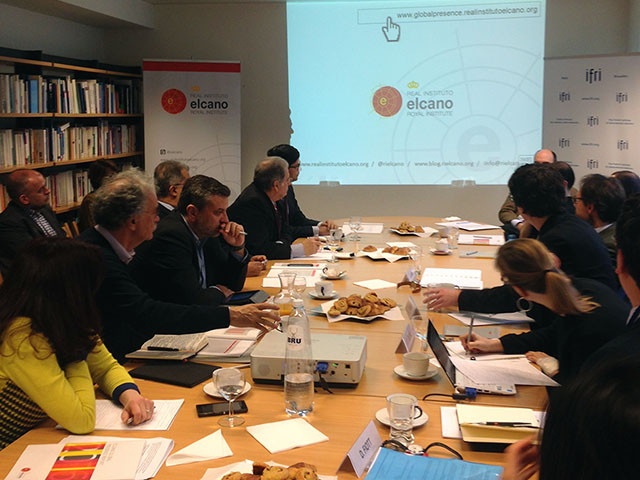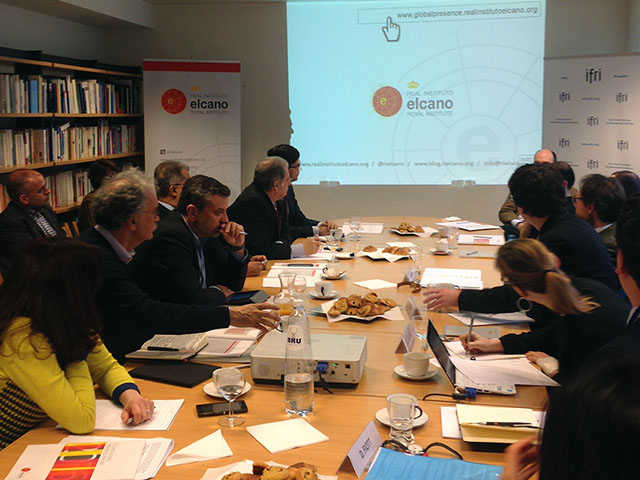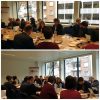The rise of populism throughout the developed world, the looming Brexit talks, and the recent election of Donald Trump in the United States have triggered a debate about the pros and cons of globalisation. Meanwhile, the newly adopted EU Global Strategy promises to usher in a stronger Europe. How are these developments likely to affect Europe’s global presence?
The Elcano Global Presence Index defines global presence as the extent to which countries project themselves beyond their borders. It calculates the projection and performance of 90 countries since 1990 based on three dimensions: economic, military and soft power.
Iliana Olivié, Senior Analyst and coordinator of the Elcano Global Presence Index Project, presented the main findings of the 2016 edition of the Elcano Global Presence Index and discussed its relevant trends. Daniel Fiott, Security and Defence Editor at European Union Institute for Security Studies, assessed how the EU and its leading member states are doing on the military, economic and soft power fronts, and identified some of the future challenges to Europe’s global presence. Giovanni Grevi, Senior fellow at the European Policy Centre, assessed the possible implications of Trump’s election for US global presence, and examined the performance of other key global actors, such as China, Russia, India or Brazil. The debate was moderated by Luis Simón, Director of the Elcano Royal Institute’s Brussels office.



